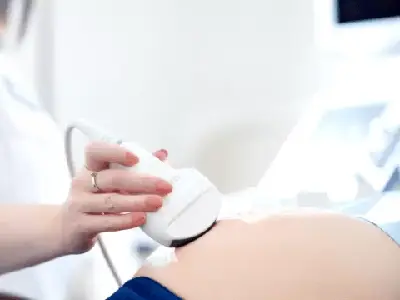- Ovulation Study

An ovulation study, also known as ovulation monitoring or follicular tracking, is a medical assessment used to monitor a woman’s menstrual cycle and identify the timing of ovulation. This type of study is often recommended for couples trying to conceive or for women with irregular menstrual cycles.
Here’s an overview of what an ovulation study typically involves:
1.Ultrasound Scans: Ovulation studies often include transvaginal ultrasound scans. These scans help visualize the ovaries and monitor the development of ovarian follicles, which contain the eggs. The size and maturity of the follicles can provide insights into the stage of the menstrual cycle.
2.Hormone Monitoring: Blood tests may be conducted to measure hormone levels, particularly luteinizing hormone (LH) and estradiol. A surge in LH, often referred to as the LH surge, typically precedes ovulation. Tracking hormonal changes helps predict when ovulation is likely to occur.
3.Basal Body Temperature (BBT) Charting: Some women may also track their basal body temperature throughout the menstrual cycle. A slight increase in basal body temperature indicates that ovulation has occurred. BBT charting is a home-based method that involves taking your temperature at the same time every morning before getting out of bed.
4.Cervical Mucus Observation: Changes in cervical mucus consistency can be observed to identify fertile days. As ovulation approaches, cervical mucus becomes clearer, slippery, and more stretchy, resembling egg whites.
5.Ovulation Predictor Kits (OPKs): These are at-home testing kits that detect the surge in LH, helping predict ovulation. They work similar to pregnancy test strips and are often used in conjunction with other methods.
The goal of an ovulation study is to pinpoint the fertile window, the days when a woman is most likely to conceive. Couples trying to conceive can use this information to time intercourse optimally.
It’s important to note that individual variations in menstrual cycles can affect the accuracy of predicting ovulation. Additionally, factors such as stress, illness, or certain medical conditions can influence the menstrual cycle.
If you are considering an ovulation study, it’s advisable to consult with a healthcare provider or a fertility specialist. They can tailor the approach based on your specific circumstances and provide guidance on the most appropriate methods for monitoring ovulation in your particular case.
